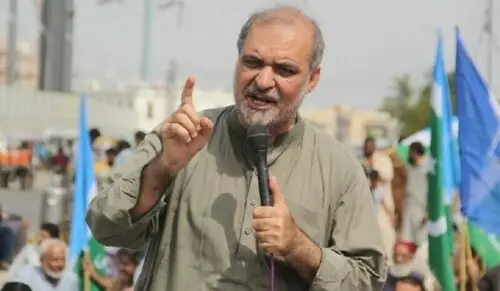
MUMBAI: The sole surviving gunman from the 2008 Mumbai attacks, Mohammad Ajmal Amir Kasab, was executed on Wednesday, nearly four years after 166 people were killed in a three-day rampage through India’s financial capital.
Pakistan-born Kasab was hanged at Yerwada jail in Pune in the western state of Maharashtra after President Pranab Mukherjee rejected his pleas for mercy earlier this month.
“Kasab was transferred to Yerwada jail two days ago. He was hanged at 7:30 this morning (0200 GMT),” Maharashtra home minister R.R. Patil announced to reporters in Mumbai. “His execution is a fitting tribute to the victims of Mumbai attacks.”
The 25-year-old Kasab was one of 10 gunmen who laid siege to the city in attacks that began on November 26, 2008, and lasted nearly three days. It was the deadliest militant onslaught on Indian soil since independence.
He was sentenced to death in May 2010 after he was found guilty of a string of charges, including waging war against India, murder and terrorist acts.
During the attacks, the heavily-armed gunmen stormed targets in Mumbai including luxury hotels, a Jewish centre, a hospital and a bustling train station.
Kasab initially pleaded not guilty at his trial but later confessed, admitting he was one of the gunmen sent by the LeT.
At his trial, the prosecution produced fingerprint, DNA, eyewitness and TV footage evidence showing him opening fire and throwing grenades at Mumbai’s main railway station in the bloodiest episode of the attacks.
When his trial began in 2009, Kasab at first appeared relaxed, joking or smiling at lawyers and reporters.
But he seemed increasingly sullen, withdrawn and even asleep as the trial progressed, prompting fears for his mental state. He showed no emotion in the dock when the verdict was handed down.
Kasab appealed in the Supreme Court, claiming he did not receive a fair trial but his petition was struck down in August.
During his appeal, Kasab argued that he was denied proper legal representation and that some charges against him were not proved beyond a reasonable doubt.
“I was denied a fair trial,” Kasab said in a statement when his appeal hearing began in January. “I may be guilty of killing people and carrying out a terrorist act but I am not guilty of waging war against the state.”
Pakistan informed about Kasab hanging: India
India’s government said it informed Islamabad in advance of the decision to hang Kasab, but their Pakistani counterparts refused to accept the letter.
Home Minister Sushilkumar Shinde told reporters in New Delhi he had even ended up sending a fax to Islamabad after the letter was rebuffed. Other officials said a similar message had been couriered to Kasab’s family.
“The external affairs ministry gave the letter to Pakistan but Pakistan did not accept it. Then we faxed the letter,” Shinde said.
The 25-year-old Kasab, from the village of Faridkot in the Punjab region, was hanged at Yerwada jail in the Indian city of Pune after President Pranab Mukherjee rejected his pleas for mercy earlier this month.
India’s Foreign Minister Salman Khurshid said the government had followed diplomatic protocol by informing Pakistan in advance about the execution.
“We attempted to convey to the Pakistan foreign office that this decision had been taken and the execution will be done this morning,” Khurshid said.
“Since those missives were not accepted by the foreign office, by fax we indicated the information to them.”
Prithviraj Chavan, the local state chief minister, said Kasab had been buried inside Yerwada jail while Indian Home Secretary R. K. Singh said his family had been kept informed.
In a statement carried by Pakistan’s state PTV channel, foreign ministry spokesman Moazzam Ahmad Khan was quoted as saying that “the Indian deputy high commissioner informed us about the execution” of Kasab.
“Pakistan’s stance is very clear. Pakistan condemns all forms of terrorism,” he added. “Pakistan is cooperating with the international community.”





























